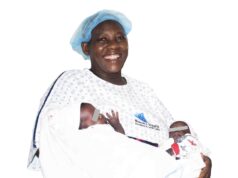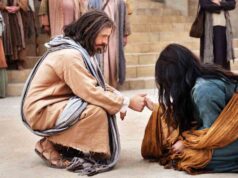There is no law that regulates the rights of partners in a cohabitation relationship, at least in Uganda, regardless of how long they have lived together.
Cohabitation does not create any automatic legal rights and duties between the two parties. Upon death of your partner, you are not even legally entitled to any of his/her property unless you are mentioned in the will. But as Beatrice Nakibuuka writes, Christianity has embraced a strategy to get the flock out of this sinful arrangement.
In a campaign to moralise the Christian society and tackle the population explosion, the government of Burundi ordered all married couples to wed by the end of the year.
The government said couples that would fail to get married by the deadline would face legal action, the BBC reported, although it was not clear what the punishments would be.
President Pierre Nkurunziza launched the campaign in May last year, urging people to get married to show respect to their relationship and their country.
Interior ministry spokesman, Terence Ntahiraja, told AFP that Burundi was facing a population explosion because of the live-in relationships, illegal marriages, polygamy and bigamy.
He added that hundreds of school-going girls were getting pregnant every year.
“We want Burundians to understand that everyone is responsible for his life; we want order in this country,” he said, adding that the campaign was within the framework of the “patriotic training programme” of President Nkurunziza.
Reports say that officials in the southeastern province of Rutana have ordered that “persons living in common-law unions” should be put on a special list by June 22, and authorities in the northwestern Bubanza province have demanded unspecified “sanctions” against unwed couples living together.
The government officials in the country have also started organizing mass weddings to implement the president’s orders.
Mass weddings; strategy
against cohabitation
Unlike Burundi, Uganda does not have a presidential decree or a deadline on legalized marriage. Nonetheless, cohabitation is fast fading away because churches have launched vigorous campaigns to eliminate this unofficial marriage arrangement.
Though not a very new phenomenon in our country, mass weddings are proving to be a working strategy for Christians to clear their flock of people living in sin. Many churches are holding them more often and wedding many more people, sometimes hundreds of couples, at a go.
Pr Robert Kayanja’s 77 Days of Glory (DOGs) mass wedding is one of the most recent and biggest mass weddings where 200 couples tied a knot last year. The couples, some of whom had cohabited for long, seized the opportunity and each was given a cake and allowed to come with a best man, matron and two relatives.
Experience
Alexander Kyazze (30) and Stella Komukama (27) were among the couples wedded under 77 DOGs wedding on May 4, 2017. The two had been friends for long, and had attended same high school and university. After university in 2010, they got into a serious relationship but did not live together because Komukama was living with her parents.
Kyazze says: “We had dated since 2010, and I proposed to her in 2015. In June 2016, I got a consent letter from her parents allowing us to marry, but I got lazy and did not think about officially marrying her at that point.
“I was a Catholic initially, but became born-again Christian in December 2016. I continued going to church, when I heard an announcement that there was going to be a mass wedding, I registered.
The fact that everything was going to be free of charge captured my attention, and I thought I should not miss the opportunity. I then told my wife that everything was set. On the D-day, we enjoyed with the rest of the couples.”
For Komukama, the story is no different.
“Most people want to sanctify their marriages, but do not have the means in terms of funds. When we got the opportunity to get out of sin, we were able to break free from it.
As the pastor had said, it was very difficult to pray for people to get a breakthrough while they continued to live in sin. I think all churches should adopt such a programme.”
Another experience is for Joseph Wasswa, (38), who lost his first wife in a motor accident. She left three children aged seven, four and one respectively. It took Wasswa about three years to find another wife.
“It was hard for me to accept the reality, but later I got a woman I admired. Knowing my past, she accepted to live with me after I had sought consent from her parents,” he says.
The two, for more than three years, stayed together while the hope of getting wedded in church was kept back by the fact that they had to pay school fees for the children and their savings were not enough to hold a wedding.
“I wanted to legally marry her, but all the time this dream seemed impossible because each day, the school fees burden increased yet my job was not providing enough.”
To him, it was not about making a posh wedding because he had wedded his late wife. All he needed this time was to be cleansed from the sin of cohabiting. The wedding could never have happened had it not been for the mass wedding, he believes.
“Then there was an opportunity announced at St Charles Lwanga Ggaba Catholic Parish church that there was going to be a mass wedding. A friend told me about it; so, I registered because I had the recommendation from my church and had finished the introduction. I am now happily and legally married in a marriage blessed by God,” he says.
Why mass weddings?
Society has recently moved from the gist of the wedding matter to a show of wealth.
This has instead forced a great number of people into cohabiting, according to Pr Andrew Mwesigwa, head of the marriage department at Miracle Centre Cathedral.
Churches today are resorting to mass weddings because many couples are cohabiting amidst the need to address this unrighteousness.
“No Christian wants to live a sinful way, but weddings these days are so commercialized that couples find it hard to hold one for themselves especially where they must pay bride price first and marry legally in church later,” Mwesigwa says.
The need for the mass weddings, according to Pr Hannington Ntulo, the church pastor at SDA Kireka, is because the couple that has been cohabiting probably has children already and the expenses incurred in the wedding process are very high.
“As a church, we need to provide a platform to help the couple out of sin by trying to help contribute to most of the expenses for the wedding since some have no jobs or are already paying school fees for their children,” says Pr Ntulo.
Pr Micheal Kyazze of Omega Healing Centre says they got concerned that many youths have been living a life of cohabitation, which is not blessed.
Pr Kyazze says creating opportunities like a mass wedding is one of the ways that would get youths to commit to their loved ones in a lasting union recognized by God.
“It is difficult for the church to experience the blessing of God unless we build the marriage institution on the word of God,” Pr Kyazze says.
“There is a lot of immorality in society. As a church, we need to emancipate the flock in all aspects of life such as spiritually, socially and economically and help them to avoid sin.
God is pleased with married people, and as a church, we have organized mass weddings to help people who think it is hard to get into holy matrimony.”
Type of couples
According to Pr Mwesigwa, the couples that come for the mass weddings are basically those that cannot afford the singular wedding arrangements.
They are usually of different ages, some of whom have stayed together for as long as 10 years or more, but probably dread the expenses that come with legalizing their marriages.
Pr Mwesigwa says: “We ask couples to respect their parents so they get consent. Some have finished the customary visit to the girls’ parents (introduction), but get stuck there because they think only an endorsement from the family is enough, which is wrong.
They must get legally married in church because it is the only type of marriage God recognizes.”
Requirements
Different churches have different requirements before wedding a couple. Some just need the acceptance from the couple of the ideal age (18 and above), a consent letter from the parents and the church provides transport, a cake, wedding gowns and a reception venue.
Pr Mwesigwa says some churches complicate matters when it comes to marriages by first asking whether the couple has been tithing to get back into righteousness, repenting and forsaking their past sin.
“How can they be clean when they have lived in sin for a long time?” Pr Mwesigwa ponders. “We just have to help them get clean freely by cleansing their marriages.”
However, according to Pr Ntulo, the couple needs to pay Shs 500,000 for the entire event.
“Much as we want people to legalize their marriages, we want them to be responsible, too. When they do not contribute anything, they may not attach importance because everything was free.”
Where?
The number of Pentecostal churches licensed to conduct marriages in Uganda rose from 62 to 136, after government confirmed the issuance of licenses in March 2016. Some include Pr Joseph Sserwadda’s Victory Christian Centre, Pr Robert Kayanja’s Miracle Centre, Pr Michael Kyazze’s Omega Healing Centre and Pr Jackson Ssenyonga’s Christian Life Church, among others.
Uganda Martyrs shrine Namugongo, St Charles Lwanga Ggaba parish, SDA Kireka Church and St Paul’s Cathedral Namirembe, among other churches, hold annual mass weddings.
St Jude Thaddeus Catholic church, Naguru, wedded seven couples on October 21, 2016; St Agnes church, Makindye, on November 20, 2016 wedded 11 couples; St Paul Church of Uganda, Ibanda, wedded 54 couples on July 23, 2016; SDA Kireka Church wedded eight couples on September 25, 2016 and St Paul Namirembe Cathedral wedded 35 couples on July 30, 2016.
The law
Cohabiting is not recognized under any law in Uganda, according to Sylvia Namubiru Mukasa, the executive director Legal Aid Service Providers Network (LASPNET). Cohabiting, she adds, does not constitute marriage despite the number of years a man and a woman have lived together and the children they have.
The Marriage and Divorce Bill tabled in parliament in 2009, however, saw some legislators and advocates, among other issues, rallying for cohabitation to be recognized as a form of marriage in Uganda.
Some media reports show that the bill is likely to be re-tabled soon by some women activists and civil society organisations to scale down the countless problems arising from marital strife.





















